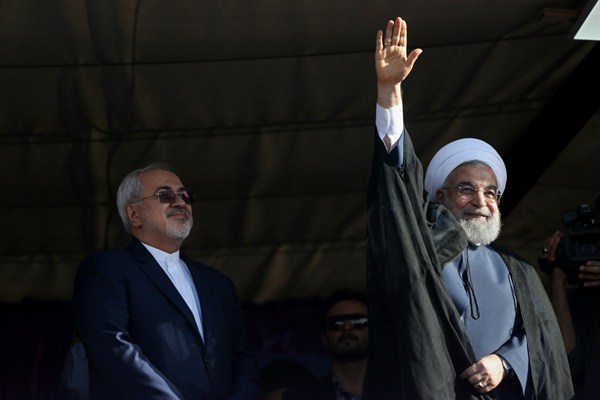Last week, the U.S. Senate passed a bill imposing new sanctions on Iran and Russia. Even if the bill makes it through the legislative process to become law, it should not derail the 2015 agreement that curtails Iran’s nuclear activities. But more intangible factors, including Secretary of State Rex Tillerson’s recent comments on the Iranian regime, could do harm to the agreement’s durability.
The sustainability of the Iran nuclear agreement, one of former President Barack Obama’s signature foreign policy achievements, has been in doubt since Donald Trump’s presidential election. On the campaign, Trump mocked the agreement and suggested that he might walk away from it once in office. Instead, his administration has launched a policy review on Iran that might lead to a call for canceling or revising the agreement. In the meantime, the U.S. government has kept it in place.
The administration has turned its focus to all the other things about Iran that are incompatible with U.S. interests: its role in various regional conflicts, including the recent escalation of its military involvement in Syria; its support for Hezbollah and other nonstate actors that use terrorism; its ballistic missile program; and its poor human rights record at home, including its mistreatment of dual-national Iranian-Americans. So far, the discussion about new sanctions has addressed these nonnuclear problems, and therefore does not technically undermine the U.S. commitment to the nuclear agreement.

